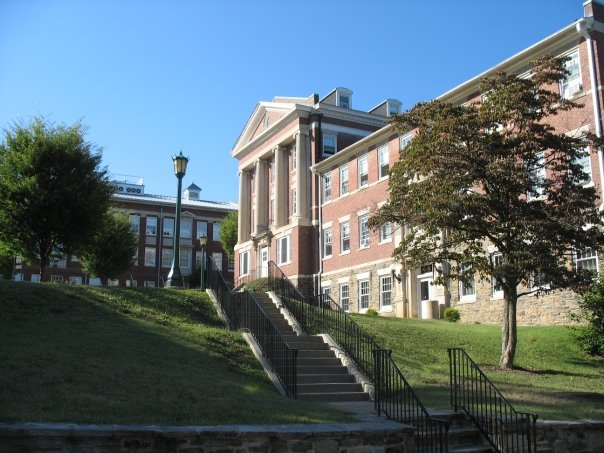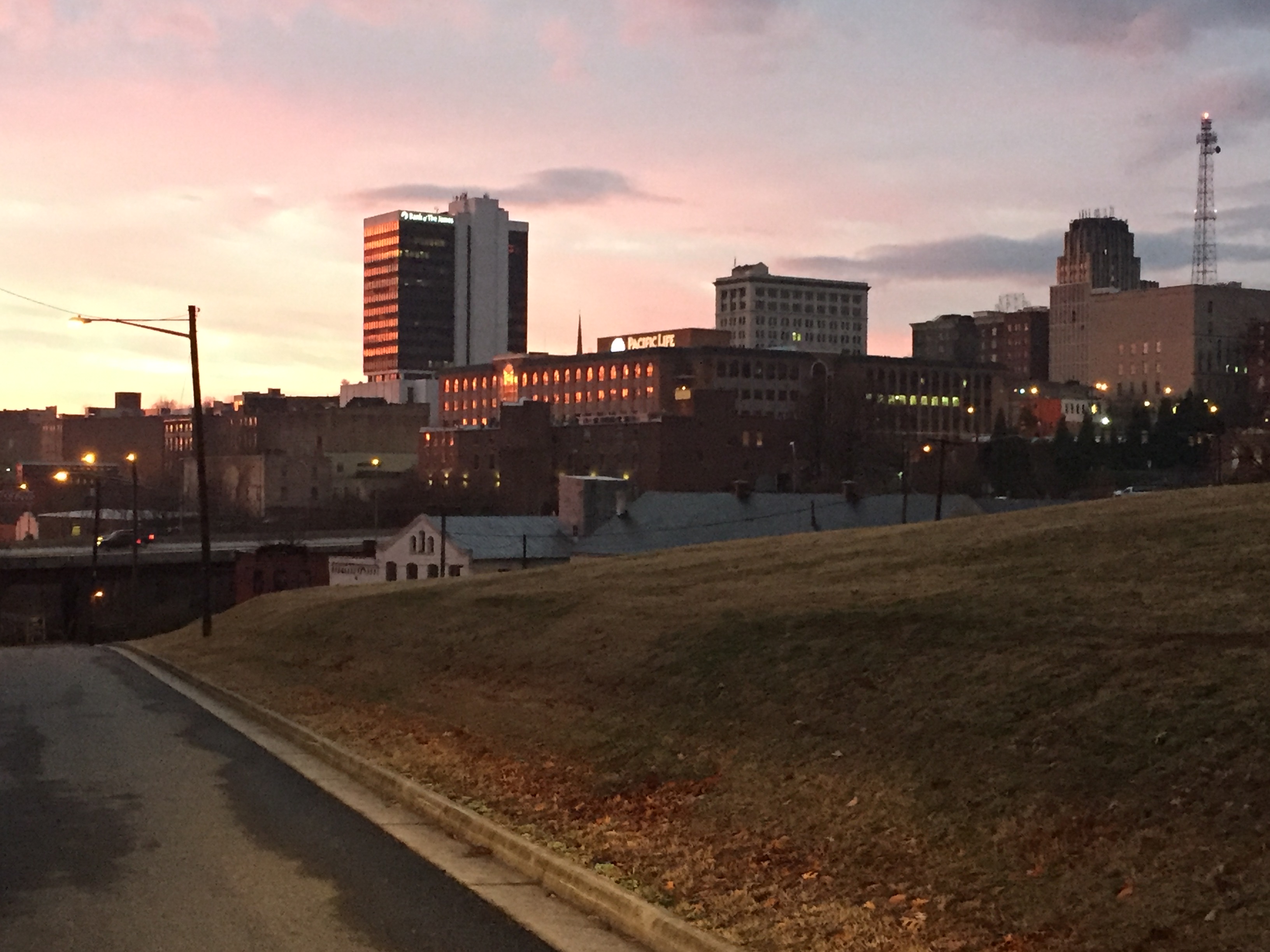|
Colleges That Change Lives
''Colleges That Change Lives'' began as a college educational guide first published in 1996 by Loren Pope. Colleges That Change Lives (CTCL) was founded in 1998 is a non-profit, 501(c)(3) based on Pope's book. The book ''Colleges That Change Lives'' is a book that explores college admissions in the United States and has four editions. It was first published in 1996, with a second edition in 2000, and a third edition in 2006. The final fourth edition (2013-2014) was published in 2012 after Pope's death, and was revised by Hilary Masell Oswald. A non-profit organization modeled after the book now carries the name. The fourth edition profiles 40 choices for liberal arts colleges that, "have one primary mission: educate the undergraduate. Each appeals to a slightly different type of teenager, but they all share a mission to raise students' trajectories and develop thinkers, leaders, and moral citizens. The little-known truth is that these colleges have been on the cutting edge of high ... [...More Info...] [...Related Items...] OR: [Wikipedia] [Google] [Baidu] |
Loren Pope
Loren Brooks Pope (July 13, 1910 – September 23, 2008) was an American writer and educational consultant, best known for his book, ''Colleges That Change Lives''. He was also the education editor of ''The New York Times.'' Background Born in Minneapolis, Pope grew up in northern Virginia. He was a Democrat, in a family of stalwart Republicans. He was an alumnus of DePauw University. Pope married and divorced Charlotte Swart Pope and Ida Wallace Pope. Pope was married 24 years to Viola Barrett Greenland Pope, who lived to the age of 96. In 1965, Pope, founded the College Placement Bureau, one of the first independent college placement counseling services in the United States. His first book, ''The Right College: How to Get In, Stay In, Get Back In'' (Macmillan, 1970), was followed by a nationally syndicated article series, "Twenty Myths That Can Jinx Your College Choice," published in ''The Washington Post Magazine'' and ''Reader's Digest''. A second book, ''Looking Be ... [...More Info...] [...Related Items...] OR: [Wikipedia] [Google] [Baidu] |
Decatur, Georgia
Decatur is a city in, and the county seat of, DeKalb County, Georgia, which is part of the Atlanta metropolitan area. With a population of 24,928 in the 2020 census, the municipality is sometimes assumed to be larger since multiple ZIP Codes in unincorporated DeKalb County bear Decatur as the address. The city is served by three MARTA rail stations ( Decatur, East Lake, and Avondale). The city is located approximately northeast of Downtown Atlanta and shares its western border with both the city of Atlanta (the Kirkwood and Lake Claire neighborhoods) and unincorporated DeKalb County. The Druid Hills neighborhood is to the northwest of Decatur. The unofficial motto of Decatur used by some residents is "Everything is Greater in Decatur." History Early history Prior to European settlement, the Decatur area was largely forested (a remnant of old-growth forest near Decatur is preserved as Fernbank Forest). Decatur was established at the intersection of two Native American trails: ... [...More Info...] [...Related Items...] OR: [Wikipedia] [Google] [Baidu] |
Agnes Scott College
Agnes Scott College is a private women's liberal arts college in Decatur, Georgia. The college enrolls approximately 1,000 undergraduate and graduate students. The college is affiliated with the Presbyterian Church and is considered one of the Seven Sisters of the South. It also offers co-educational graduate programs. History The college was founded in 1889 as Decatur Female Seminary by Presbyterian minister Frank Henry Gaines. In 1890, the name was changed to Agnes Scott Institute to honor the mother of the college's primary benefactor, Col. George Washington Scott. The name was changed again to Agnes Scott College in 1906, and remains today a women's college. Agnes Scott is considered the first higher education institution in the state of Georgia to receive regional accreditation. The ninth and current president since July 2018 is Leocadia I. Zak, who previously worked as director of the U.S. Trade and Development Agency (USTDA). On July 27, 1994, the campus was listed ... [...More Info...] [...Related Items...] OR: [Wikipedia] [Google] [Baidu] |
Southern United States
The Southern United States (sometimes Dixie, also referred to as the Southern States, the American South, the Southland, or simply the South) is a geographic and cultural region of the United States of America. It is between the Atlantic Ocean and the Western United States, with the Midwestern and Northeastern United States to its north and the Gulf of Mexico and Mexico to its south. Historically, the South was defined as all states south of the 18th century Mason–Dixon line, the Ohio River, and 36°30′ parallel.The South . ''Britannica.com''. Retrieved June 5, 2021. Within the South are different subregions, such as the |
Annapolis, Maryland
Annapolis ( ) is the capital city of the U.S. state of Maryland and the county seat of, and only incorporated city in, Anne Arundel County. Situated on the Chesapeake Bay at the mouth of the Severn River, south of Baltimore and about east of Washington, D.C., Annapolis forms part of the Baltimore–Washington metropolitan area. The 2020 census recorded its population as 40,812, an increase of 6.3% since 2010. This city served as the seat of the Confederation Congress, formerly the Second Continental Congress, and temporary national capital of the United States in 1783–1784. At that time, General George Washington came before the body convened in the new Maryland State House and resigned his commission as commander of the Continental Army. A month later, the Congress ratified the Treaty of Paris of 1783, ending the American Revolutionary War, with Great Britain recognizing the independence of the United States. The city and state capitol was also the site of the 1786 An ... [...More Info...] [...Related Items...] OR: [Wikipedia] [Google] [Baidu] |
Westminster, Maryland
Westminster is a city in northern Maryland, United States. It is the seat of Carroll County. The city's population was 18,590 at the 2010 census. Westminster is an outlying community within the Baltimore-Towson, MD MSA, which is part of a greater Washington-Baltimore-Northern Virginia, DC-MD-VA-WV CSA. History William Winchester (1706-1790) purchased approximately 167 acres of land called White's Level in 1754 which became known as the city of Winchester. The Maryland General Assembly later changed the name of the town to Westminster to avoid confusion with Winchester, the seat of nearby Frederick County, Virginia. On June 28, 1863, the cavalry skirmish known as Corbit's Charge was fought in the streets of Westminster, when two companies of Delaware cavalry attacked a much larger Confederate force under General J. E. B. Stuart, during the Gettysburg Campaign. In April 1865, Joseph Shaw, newspaper editor, had his presses wrecked and his business destroyed, and was subsequent ... [...More Info...] [...Related Items...] OR: [Wikipedia] [Google] [Baidu] |
McDaniel College
McDaniel College is a private college in Westminster, Maryland. Established in 1867, it was known as Western Maryland College until 2002 when it was renamed McDaniel College in honor of an alumnus who gave a lifetime of service to the college. The college also has a satellite campus, McDaniel College Budapest, in Budapest, Hungary. McDaniel College is accredited by the Middle States Commission on Higher Education. The college owns and manages a shopping center and residential properties through its for-profit arm. History The college was founded in 1867 as Western Maryland College, and was named for the Western Maryland Railroad because the college's first Board chairman, John Smith of Wakefield, was also the president of the railroad. (Neither the railroad nor the Methodist Protestant Church contributed funds to facilitate the establishment of the college. Some contributions, however, were received from Methodist Protestant laymen, including John Smith.) It had a voluntary f ... [...More Info...] [...Related Items...] OR: [Wikipedia] [Google] [Baidu] |
Lynchburg, Virginia
Lynchburg is an independent city (United States), independent city in the Commonwealth (U.S. state), Commonwealth of Virginia in the United States. First settled in 1757 by ferry owner John Lynch (1740–1820), John Lynch, the city's population was 79,009 at the 2020 United States census, 2020 census. Located in the foothills of the Blue Ridge Mountains along the banks of the James River, Lynchburg is known as the "City of Seven Hills" or the "Hill City". In the 1860s, Lynchburg was the only city in Virginia that was not recaptured by the Union (American Civil War), Union before the end of the American Civil War. Lynchburg lies at the center of a wider Lynchburg metropolitan area, metropolitan area close to the geographic center of Virginia. It is the fifth-largest Metropolitan statistical area, MSA in Virginia, with a population of 261,593. It is the site of several institutions of higher education, including Virginia University of Lynchburg, Randolph College, University of L ... [...More Info...] [...Related Items...] OR: [Wikipedia] [Google] [Baidu] |
University Of Lynchburg
The University of Lynchburg, formerly Lynchburg College, is a private university associated with the Christian Church (Disciples of Christ) and located in Lynchburg, Virginia. It has approximately 2,800 undergraduate and graduate students. The university's campus spans 264 acres. History The University of Lynchburg was founded in 1903 by Dr. Josephus Hopwood as Virginia Christian College, a selective, independent, coeducational, and residential institution, which is affiliated with the Christian Church (Disciples of Christ). Hopwood was president of Milligan College in Tennessee when a group of ministers and businessmen approached him about establishing a college in Lynchburg. He agreed to serve as president, after which the group purchased the failed Westover Hotel resort for $13,500, securing Lynchburg's current campus. Hopwood worked with his wife Sarah Eleanor LaRue Hopwood to establish the college based on their shared vision. The University of Lynchburg was the first ... [...More Info...] [...Related Items...] OR: [Wikipedia] [Google] [Baidu] |
Towson, Maryland
Towson () is an unincorporated community and a census-designated place in Baltimore County, Maryland, United States. The population was 55,197 as of the 2010 census. It is the county seat of Baltimore County and the second-most populous unincorporated county seat in the United States (after Ellicott City, the seat of nearby Howard County, southwest of Baltimore). History 1600s The first inhabitants of the future Towson and central Baltimore County region were the Susquehannock people, who hunted in the area. Their region included all of Baltimore County, though their primary settlement was farther northeast along the Susquehanna River. 1700s Towson was settled in 1752 when Pennsylvania brothers, William and Thomas Towson, began farming an area of Sater's Hill, northeast of the present-day York and Joppa Roads. William's son, Ezekiel, opened the Towson Hotel to serve the growing number of farmers bringing their produce and livestock to the port of Baltimore. He built the hote ... [...More Info...] [...Related Items...] OR: [Wikipedia] [Google] [Baidu] |



